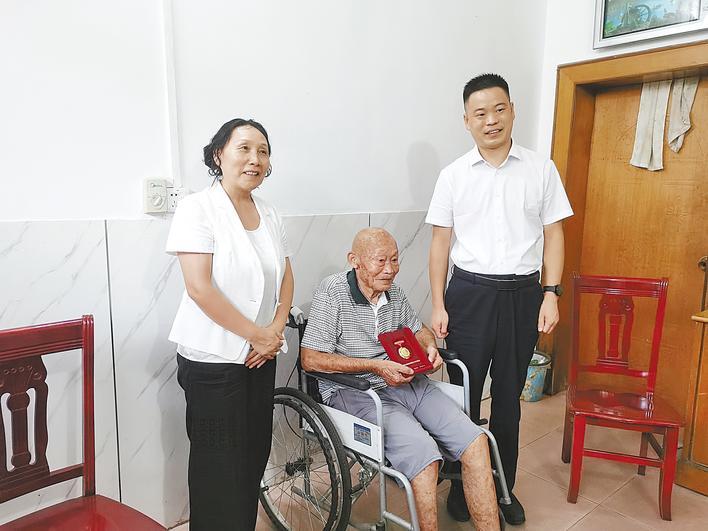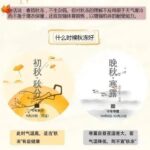Mei Zutang, an elderly man, holds a commemorative medal with a smile on his face.
These past few days, Mei Zutang, a World War II veteran from Guangshui City, has been especially happy. As his 100th birthday approaches, his home has been filled with joyful news.
On August 20, relevant leaders from Suizhou City and Guangshui City visited him at home to offer their condolences and presented him with the weighty 80th Anniversary Commemorative Medal of the Victory of the Chinese People’s War of Resistance Against Japanese Aggression. Last month, his great-grandson also received an admission notice from Wuhan University.
“Grandfather said this is the best birthday gift he has ever received!” said Mei Yuqing, Mei Zutang’s eldest granddaughter.
Severely injured and found only after three days and three nights
Mei Zutang was born in 1925. In 1939, at just 14 years old, he joined the New Fourth Army’s Yu-E Independent Guerrilla Detachment with a patriotic spirit. The detachment commander was Li Xiannian. Over the next five years, he followed the troops through battles in Luoshan, Dawu Xuanhuadian, Guangshui Wudian Town, Chenxiang Town Shoushan, as well as areas around Sui County Fuhe Baizhao Mountain and Luoyang Town Jiukouyan, participating in over 30 large and small anti-Japanese battles.
“The Japanese invaders had reached our doorstep; we had to defend our homeland!” Mei Zutang explained. In 1940, his unit was incorporated into the New Fourth Army’s Yu-E Advance Column Thirteenth Brigade Thirty-Seventh Regiment, fighting against the Japanese in the Hubei-Henan border region. From 1940 to 1942, he served as a company messenger, risking his life multiple times to complete message delivery missions.
In December 1942, over 10,000 Japanese and puppet troops divided into 19 routes to besiege the New Fourth Army’s Fifth Division. Mei Zutang’s Thirty-Seventh Regiment engaged in fierce combat with Japanese forces at Magou Mountain Ridge in the northwest of Dawu Mountain. While carrying a message to the Second Platoon’s position, he was hit by an enemy stray bullet that pierced his right leg, breaking his thigh bone. He lost consciousness due to excessive blood loss.
“There was heavy fog that day. After delivering the command, I was halfway down the mountain when I was hit by an enemy stray bullet and collapsed in the grass,” Mei Zutang recalled. Three days and three nights later, comrades discovered him severely wounded while clearing the battlefield. Due to delayed treatment, despite over a year of careful medical care in the army hospital, his right leg was left permanently disabled.
In 1944, Mei Zutang served as the head of the Xiaogan Dougang Intelligence Station, continuing to contribute to the war effort on the hidden front. That same year, he retired and returned to his hometown due to worsening injuries.
Never forgetting comrades who sacrificed their lives in battle
Even after leaving the combat troops, Mei Zutang remained concerned for his country. From 1952 to 1980, he long served as the village production team leader and accountant, quietly dedicating himself to the construction of his hometown.
His eldest son, Mei Dehua, explained that his father and mother maintained a hardworking and frugal lifestyle their whole lives, raising five sons and two daughters through hardship. Each child established their own happy and fulfilling family, spreading the family branches across four generations, now totaling over 50 people.
“My father is very thrifty. During the war, having a meal with meat was rare, so he always felt that being able to eat meat was happiness itself.” Speaking of his father, who fought for five years in the war against Japan, Mei Dehua was filled with pride.
In August 2019, accompanied by Mei Yuqing, Mei Zutang made a special trip to the Jiukouyan Revolutionary Memorial Hall in Luoyang Town, Zengdu District, Suizhou City, braving 37°C heat to retrace his former battle footsteps. Standing before the bronze statue of Li Xiannian, he was deeply moved: “






